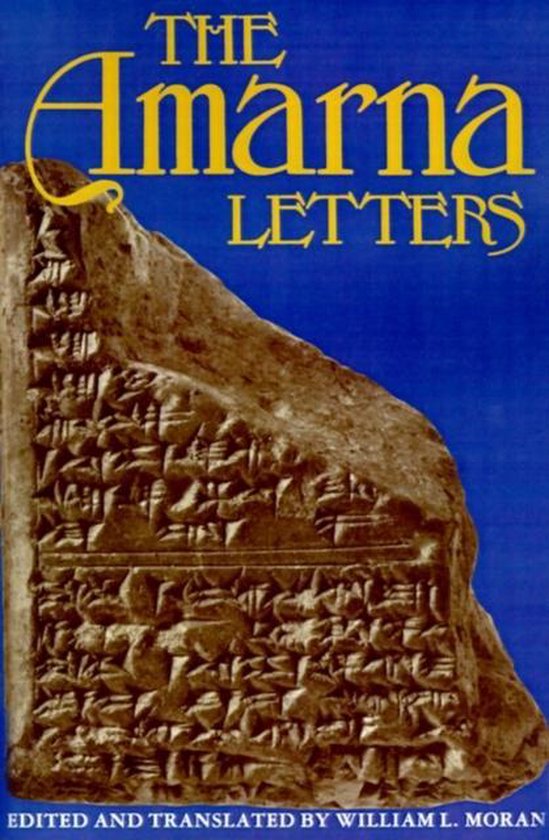
Amarna Letters
And Egyptian vassal Rib-Hadda, writing from the besieged port of Byblos, repeatedly demands military assistance for his city or, failing that, an Egyptian ship to permit his own escape.
An ancient inscription identified some of the ruins at el Amarna as "The Place of the Letters of the Pharaoh." Discovered there, circa 1887, were nearly four hundred cuneiform tablets containing correspondence of the Egyptian court with rulers of neighboring states in the mid-fourteenth century B.C. Previous translations of these letters were both incomplete and reflected an imperfect understanding of the Babylonian dialects in which they were written. William Moran devoted a lifetime of study to the Amarna letters to prepare this authoritative English translation. The letters provide a vivid record of high-level diplomatic exchanges that, by modern standards, are often less than diplomatic. An Assyrian ruler complains that the Egyptian king's latest gift of gold was not even sufficient to pay the cost of the messengers who brought it. The king of Babylon refuses to give his daughter in marriage to the pharaoh without first having proof that the king's sister -- already one of the pharaoh's many wives -- is still alive and well. The king of Karaduniyash complains that the Egyptian court has "detained" his messenger -- for the past six years. And Egyptian vassal Rib-Hadda, writing from the besieged port of Byblos, repeatedly demands military assistance for his city or, failing that, an Egyptian ship to permit his own escape.
An ancient inscription identified some of the ruins at el Amarna as "The Place of the Letters of the Pharaoh." Discovered there, circa 1887, were nearly four hundred cuneiform tablets containing correspondence of the Egyptian court with rulers of neighboring states in the mid-fourteenth century B.C. Previous translations of these letters were both incomplete and reflected an imperfect understanding of the Babylonian dialects in which they were written. William Moran devoted a lifetime of study to the Amarna letters to prepare this authoritative English translation. The letters provide a vivid record of high-level diplomatic exchanges that, by modern standards, are often less than diplomatic. An Assyrian ruler complains that the Egyptian king's latest gift of gold was not even sufficient to pay the cost of the messengers who brought it. The king of Babylon refuses to give his daughter in marriage to the pharaoh without first having proof that the king's sister -- already one of the pharaoh's many wives -- is still alive and well. The king of Karaduniyash complains that the Egyptian court has "detained" his messenger -- for the past six years. And Egyptian vassal Rib-Hadda, writing from the besieged port of Byblos, repeatedly demands military assistance for his city or, failing that, an Egyptian ship to permit his own escape.
| Auteur | | Morgan |
| Taal | | Engels |
| Type | | Paperback |
| Categorie | | Taal |